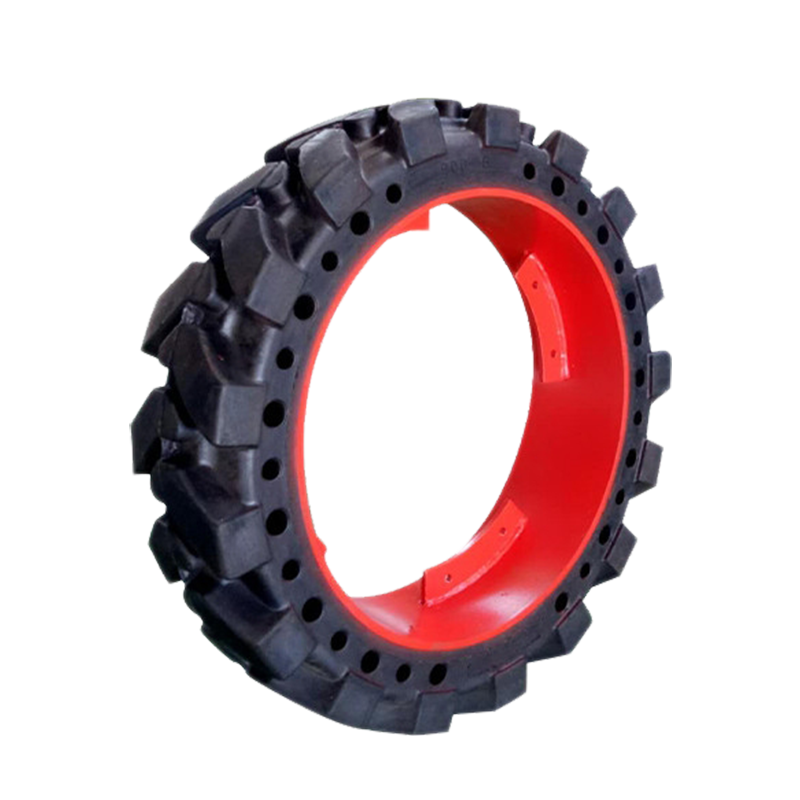The Role of Wheel Loader Tires in Safety and Efficiency – A Comprehensive Guide
Safety First: Why Tire Selection Matters
The choice of wheel loader tires directly impacts the safety of both the operator and the surrounding workforce. Poorly selected or worn-out tires increase the risk of accidents due to reduced traction, instability, or sudden blowouts. Here’s why tire selection is paramount for safety:
Traction and Stability
Wheel loaders often operate on uneven, slippery, or loose surfaces. High-quality tires with appropriate tread patterns provide superior grip, preventing skidding or tipping over during operation. For example, deep lug designs are ideal for muddy or sandy terrains, while smooth treads excel on hard-packed surfaces like asphalt.
Load-Bearing Capacity
Overloading a wheel loader beyond its tire's capacity can lead to catastrophic failures, including tire bursts or rollovers. Choosing tires rated for the maximum load ensures stability under heavy lifting conditions, protecting workers and equipment alike.
Durability Against Hazards
In hazardous environments such as quarries or demolition sites, solid tires are preferred because they resist punctures and cuts caused by sharp debris. This durability minimizes downtime and reduces the likelihood of tire-related incidents.
Temperature Resistance
Extreme temperatures can compromise tire performance. Modern wheel loader tires are engineered to withstand heat buildup during prolonged use, reducing the risk of blowouts or premature wear.
Boosting Operational Efficiency Through Proper Tire Management
Efficiency on the job site hinges not only on the machine itself but also on the quality and condition of its tires. Well-maintained tires contribute to smoother operations, lower fuel consumption, and extended equipment life.
Fuel Economy
Rolling resistance—the force required to move the tire along the ground—is a key factor affecting fuel efficiency. High-quality tires with low rolling resistance reduce energy loss, enabling the wheel loader to consume less fuel while maintaining optimal speed and power.
Minimizing Downtime
Frequent tire replacements disrupt workflow and increase costs. Investing in durable, long-lasting tires and adhering to regular maintenance schedules helps minimize unexpected breakdowns. For instance, foam-filled pneumatic tires offer the flexibility of air-filled options without the risk of punctures, ensuring consistent uptime.
Enhanced Machine Performance
The right tires improve overall machine handling, allowing operators to maneuver confidently even in challenging conditions. Smooth acceleration, precise braking, and stable cornering depend heavily on the quality and condition of the tires.
Reduced Wear on Other Components
Worn-out or improperly inflated tires place additional stress on other parts of the wheel loader, such as axles, bearings, and suspension systems. By maintaining proper tire pressure and alignment, businesses can prevent excessive wear on these components, extending the life of the entire machine.

Industry-Specific Considerations
Different industries impose unique demands on wheel loader tires, necessitating tailored solutions for each application.
Construction Sites
Construction environments typically involve rough terrain, rubble, and varying soil types. Pneumatic tires with reinforced sidewalls and aggressive tread patterns are ideal for navigating these conditions safely and efficiently.
Mining Operations
Mines present some of the harshest working conditions, with abrasive surfaces, sharp rocks, and extreme loads. Solid tires made from cut-resistant rubber compounds are indispensable in this setting, offering unparalleled durability and reliability.
Agriculture
In farming applications, minimizing soil compaction is crucial to preserve crop yields. Wide-profile, low-pressure tires distribute weight evenly across the surface, reducing damage to fields while providing excellent flotation on soft soils.
Waste Management and Recycling
Scrap yards and recycling facilities expose tires to sharp metals, glass, and other damaging materials. Solid tires with non-marking properties are commonly used here to ensure longevity and prevent contamination of processed materials.
Best Practices for Tire Maintenance
To maximize safety and efficiency, it’s essential to follow best practices for tire care:
Regular Inspections : Check for signs of wear, cracks, bulges, or embedded objects daily before operation.
Proper Inflation : Maintain the manufacturer-recommended inflation levels to avoid overloading or excessive flexing.
Timely Repairs : Address minor issues promptly to prevent them from escalating into major problems.
Storage Conditions : Store spare tires in cool, dry environments away from direct sunlight and chemicals that could degrade the rubber.
CONTACT US
-

Email: SMT001@saimeite-tyre.com
-

Phone: +86-18451337018No. 1, Renmin South Road, Yandu District, Yancheng City, Jiangsu Province, China

 English
English 한국어
한국어 Français
Français Español
Español











